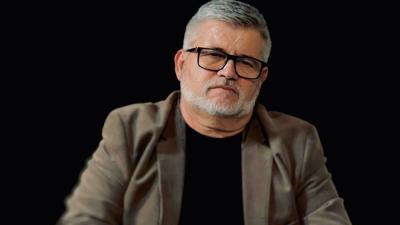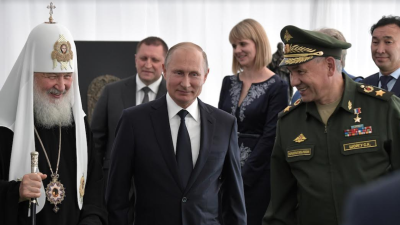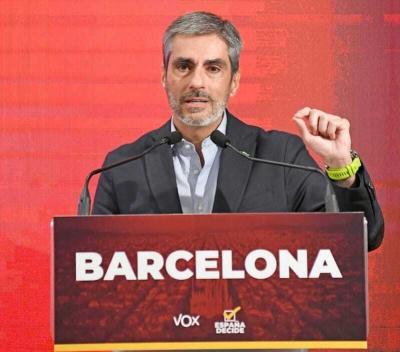Jorge Gómez is a Navy officer in Reserve status and has worked in the field of intelligence during his time at CESID/CNI (National Intelligence Center), from 1992 to 2018, being a specialist in team management, crisis management and Human Sources Intelligence (HUMINT). In 2018, he founded High Strategies Intelligence (HSI), an intelligence consulting firm, working in the field of strategic and competitive intelligence for business. He is the author of “Los secretos de la contrainteligencia – Espionaje, factor humano y tecnología en una lucha secreta dentro y fuera de España” (The secrets of counterintelligence – Espionage, human factor and technology in a secret struggle inside and outside Spain), a book in which he analyzes intelligence and counterintelligence, disinformation campaigns and influence operations, and which is published in mid-January.
Alvaro Peñas: Why do you think disinformation on issues such as intelligence is so successful?
Jorge Gómez: Because polarization sells, generates income and makes you have thousands of followers, but it completely lacks professionalism. I'll give you an example, in the bomb attack against the Russian general responsible for chemical and nuclear weapons, the debate on social networks has circulated around how the attack happened, but the professional approach is that this is the fourth or fifth attack by the Ukrainian services to take place in Moscow, which represents palpable proof that they could kill anyone. Why? For two reasons, on the one hand, because it is very likely to think that they have a network of agents on Russian territory and, on the other hand, because they have information from Western agencies, such as the CIA, MI6 or even us.
This is also a proof of the ineffectiveness of the Russian secret services.
Of course it is. It is not difficult to imagine Putin’s anger with the FSB after attacks like this one, but the mistakes have been going on since the beginning of the invasion, when FSB, GRU and SVR told their leader what he wanted to hear. This has an explanation and it is more than evident after watching a video in which the director of the SVR publicly contradicts Putin and, after the Russian president’s reply, starts babbling and ends up agreeing with him. It is very difficult to work with such a leader and this leads to ineffectiveness of the services. In the offensive against Ukraine they are completely wrong and believe they have the massive support of the population, which turns a three-day special military operation into a mousetrap and a war of almost three years.
Unfortunately, the United States is not loyal to Ukraine or Europe because they could send massive armaments to win the war, but they are playing at wearing down Russia while Ukraine lays the dead. They are not sending what is needed and they have it. Now there is talk of Trump’s arrival and that Europe should take over the burden of supporting Ukraine if the US tap is turned off, but the problem is that Europe does not have the capacity. It is true that the war has uncovered Russian weaknesses, more so for us than for the Americans, but it has also exposed our embarrassments. Spain, if it enters combat, will not last a week: we have no ammunition, no fuel, not even the basics. I was crew of the S-71, which has been in service for more than forty years when it was born to have a useful life of 25, that is to say that it is a tool that counts as a number, but little more. And the S-81 came out without the feature that makes it an effective weapon, the AIP (air-independent propulsion), and they installed it four years after its launching. In the end, Spain, with an immense coastline, has two submarines and one of them is only on paper. And the same thing happens in the intelligence services.
Is the basic problem with defense and intelligence the lack of state vision of our governments?
That’s right. That lack of state vision is transferred to the budget and everything else. When I am asked if the CNI is as effective as MI6, my answer is yes, but the difference is that the British have a budget 25 times bigger than ours. The services, like the military, are a reflection of our society. Our army can be very effective and has proven it in international missions, the problem is that to maintain a unit deployed abroad is cannibalizing the material of other units here. We have lived through years of a “No to war” policy, and of reducing the defense budget, and that has consequences.
Fortunately, such approaches are no longer on the table in most European countries.
Yes, and even the left-wing extremists say so with a small mouth. Why? Because people are afraid of what might happen in case of conflict. However, in my opinion, we have a very serious problem because we are a country without a security and defense culture, and I say nothing if we talk about intelligence culture. We see it all the time with characters like Pedro Baños, who sells himself as an intelligence expert without having been in a war, having been head of counterintelligence of the Eurocorps, something that sells very well, but which is nothing at all. Or Fernando Cocho, who does the same because he “supposedly” collaborated with the CNI. But beyond these characters, I am against their message, which coincides with that of the Russian propaganda and is harmful. I am in favor of our foreign policy and our membership in international organizations, and, moreover, because of my preparation and personal experience, which has led me to fight for a long time in counterintelligence with the Russians, I know perfectly well what the Kremlin represents and they are not going to sell me the opposite. On top of that they do all this with the excuse of patriotism, when there is only personal interest. It is miserable and deeply disgusts me.
Would they fall under the definition of “agents of influence”?
Yes, in the field of intelligence services such people are called “agents of influence”. This is not new, but what happens is that before, an agent of this type, unless he held a great position of responsibility, had a small and local influence, now, with social networks and the new communication model, an individual of this type is extremely dangerous because he puts the message in 300,000 minds. There is something we do not notice, and that is that the Russians can be very clumsy in the military field, but in this aspect of intelligence they are very good. Besides, we are not convinced that we are in a war, but they are and they execute intelligence actions in that sense. And even Russia is not the main actor, it is China, which has an economic strategy. Russia is a weapon in their hands.
Is this lack of understanding of the reality that denies that we are immersed in a conflict a consequence of the lack of leadership in Europe?
Of course, because the countries that have been able to lead have followed policies in which they have only looked after their own interests. The great Mrs. Merkel, who has just published her biography, is a traitor to Europe who defended German interests against those of the rest. It should not be forgotten that she was born in the extinct GDR, communist Germany, and collaborated, like the German social democrats, in the economic war against Europe with Nord Stream. If there is no European mentality, it is very difficult to face a common enemy.
You know Russia well, however, there is a widespread mythification in the West about Vladimir Putin’s regime.
Yes, because ignorance is replaced with propaganda. There are three things that characterize Russia: the brutality of its regime, fear and denunciation. If you ask a young Spaniard about the CNI, most of them will not know what it is, but if you ask a young Russian they know perfectly well what the KGB was and what it is now. When I was in Moscow in 1990, the guide-controller showed us the Lubyanka building, then the KGB headquarters, and told us that it was the tallest building in the Soviet Union: “Do you know why? Because from any of its five floors you can see Siberia”. Unfortunately, things are still the same in Russia.
Because I know what we have in front of us, it is so important to face all their propaganda and fight it with the truth; to constantly refute those false arguments and to do it as many times as necessary. It is an unequal war because on the other side there are professionals. The dangerous one is not the Banos on duty, who is nothing more than a tool, but the professionals who send the messages and who work against us.
And how do we fight propaganda?
The best weapon against propaganda is common sense and intuition. When we see strange news that do not appear in any traditional media and appear in the media with bombastic names, or documents without any kind of identification, it is very likely that we are facing a textbook manipulation, such as the French soldiers fallen in Ukraine or the thousands of dead from cold in Europe because of the sanctions against Russia. It is a shame and it is dramatic to think that there is a part of the population that does not want to make any mental effort and swallows all these lies, but we have to fight this narrative and that means that the people who have knowledge of these matters have more visibility because we must not let the message of the enemy permeate our society.
Read also
Ukraine has not banned Christianity
“Ukraine bans Christianity.” This claim, which has spread like wildfire on social media among many pro-Kremlin accounts, is completely false.
Álvaro Peñas
Gonzalo de Oro: "If VOX does not defend the Catalans, no one else will"
Interview with Gonzalo de Oro, VOX councillor in Barcelona City Council and coordinator of the VOX municipal group.
Álvaro Peñas
“Everything people know about Crimea comes from Russia and most of it is a lie”: An interview with Lia Motrechko
Lia Motrechko is a young activist for the rights of the Crimean Tatars. The daughter of a Ukrainian father and a Tatar mother, she lives in Spain where she studies history.














Comments (0)